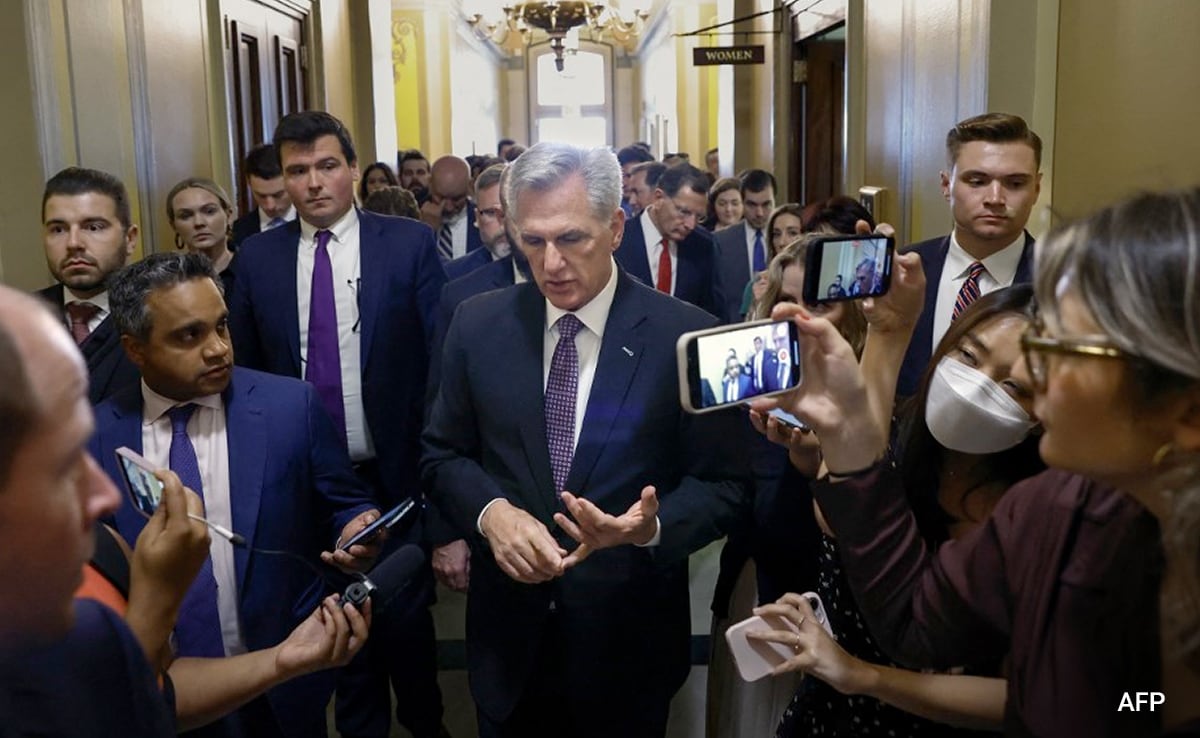
US Speaker of the House Kevin McCarthy speaks to reporters at the US Capitol
Crucial talks about raising the debt ceiling between US House Republicans and the administration of President Joe Biden resumed on Friday before ending without any progress on Friday. Guardian informed of. According to the report, talks came to an abrupt halt that day when Speaker of the House Kevin McCarthy said it was time to “stop” the talks. The negotiating teams reconvened in the evening to quickly put an end to it for the night.
Notably, the development comes at a time when the US is facing a June 1 deadline to raise the country’s borrowing limit, which now stands at $31 trillion, in order to continue paying the country’s bills. .
“At the direction of the Speaker of the House, we again engaged, had a very frank discussion about where we are, talking about where things should be, what is appropriate and acceptable,” Rep. Garrett Graves, Mr McCarthy’s chief negotiator, told reporters after Friday night’s meeting.
“It wasn’t tonight’s conversation. It was a candid discussion about realistic numbers, a realistic path forward, and something that really changes the trajectory of this country’s spending and debt problem,” he said.
However, when asked whether he believed a framework could be worked out to raise the debt limit by the end of this week, he said ‘no’. The time of the next meeting is undecided.
While congressional Republicans have been demanding budget cuts in exchange for the removal of the so-called debt ceiling, the White House has insisted for months that the nation’s credit should not be up for negotiation. White House calls Republican proposal “blueprint to destroy hard-working American families” BBC.
Last week, President Joe Biden said he was confident a deal could be reached with Republican leaders to prevent a potentially catastrophic US debt default. However, the two sides remain at an impasse despite weeks of warnings from government officials and bankers that a default could bring dire consequences, including a possible recession and potential global financial contagion.
Treasury Secretary Janet Yellen has warned that a default could happen by June 1, while the nonpartisan Congressional Budget Office projected a June 15 date on Friday.
Speaking at a news conference in Hiroshima, press secretary Karine Jean-Pierre said, “We have serious differences. And this will continue to be a difficult conversation. It is not lost on us.” He also questioned whether congressional Republicans were serious about cutting the deficit and reaching a “fair” deal.
Meanwhile, President Biden reiterated his stance on Saturday and said he still believes a default can be avoided.
“I still believe we’ll be able to avoid a default and we’ll do something good,” Biden told reporters in Hiroshima, Japan. He will return to Washington on Sunday, cutting short his foreign trip. Many Republicans have criticized him for traveling to Japan at a critical point in the talks.
In the US, the debt ceiling is a legislative limit on the amount that the US federal government can borrow. It was created under the Second Liberty Bond Act of 1917 and is also known as the debt limit or statutory debt limit.
When the debt ceiling is raised, the US Treasury must find other ways to pay for expenses, such as paying the salaries of federal employees, the military, Social Security and Medicare, as well as interest on the national debt and tax refunds.